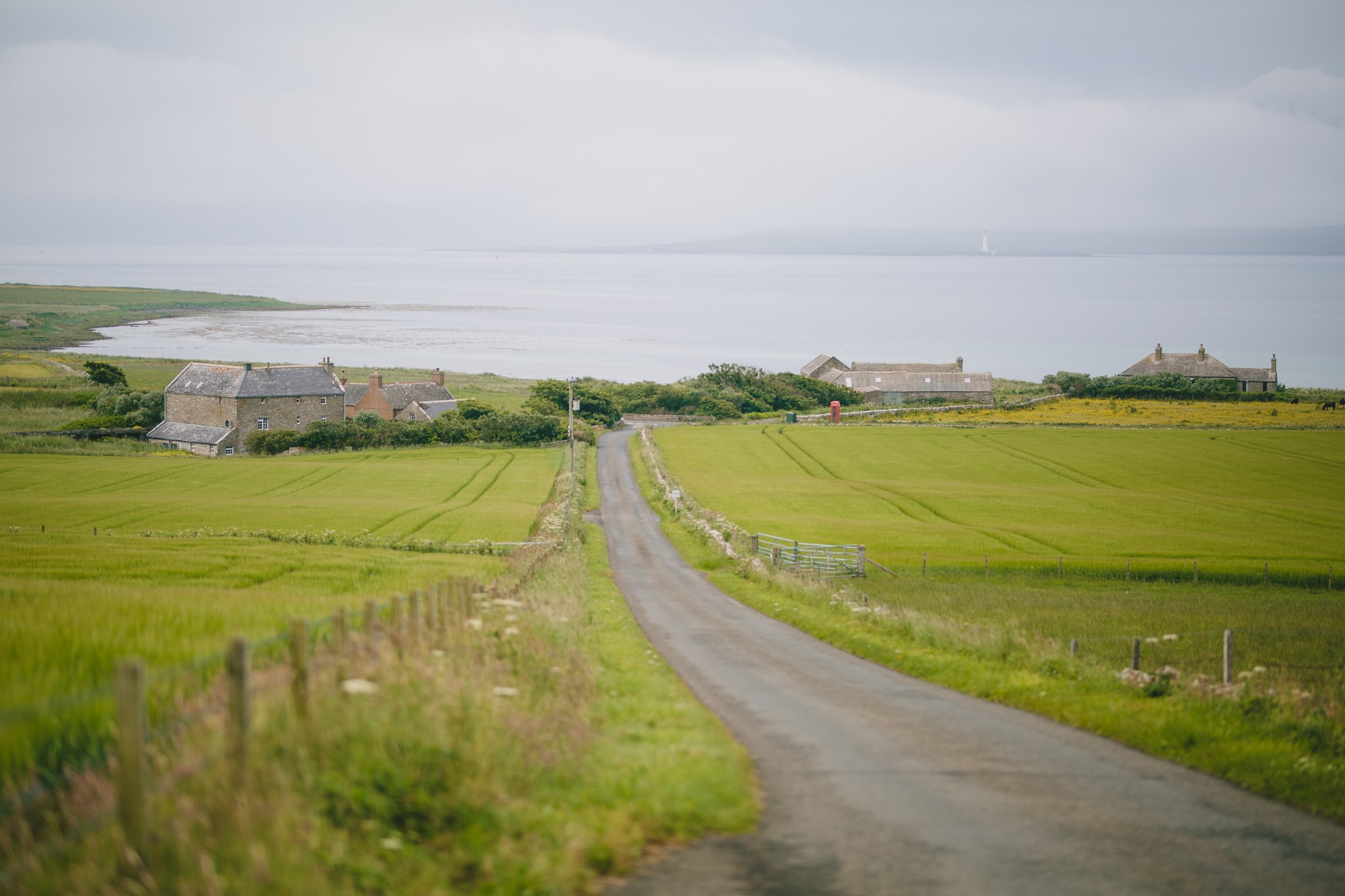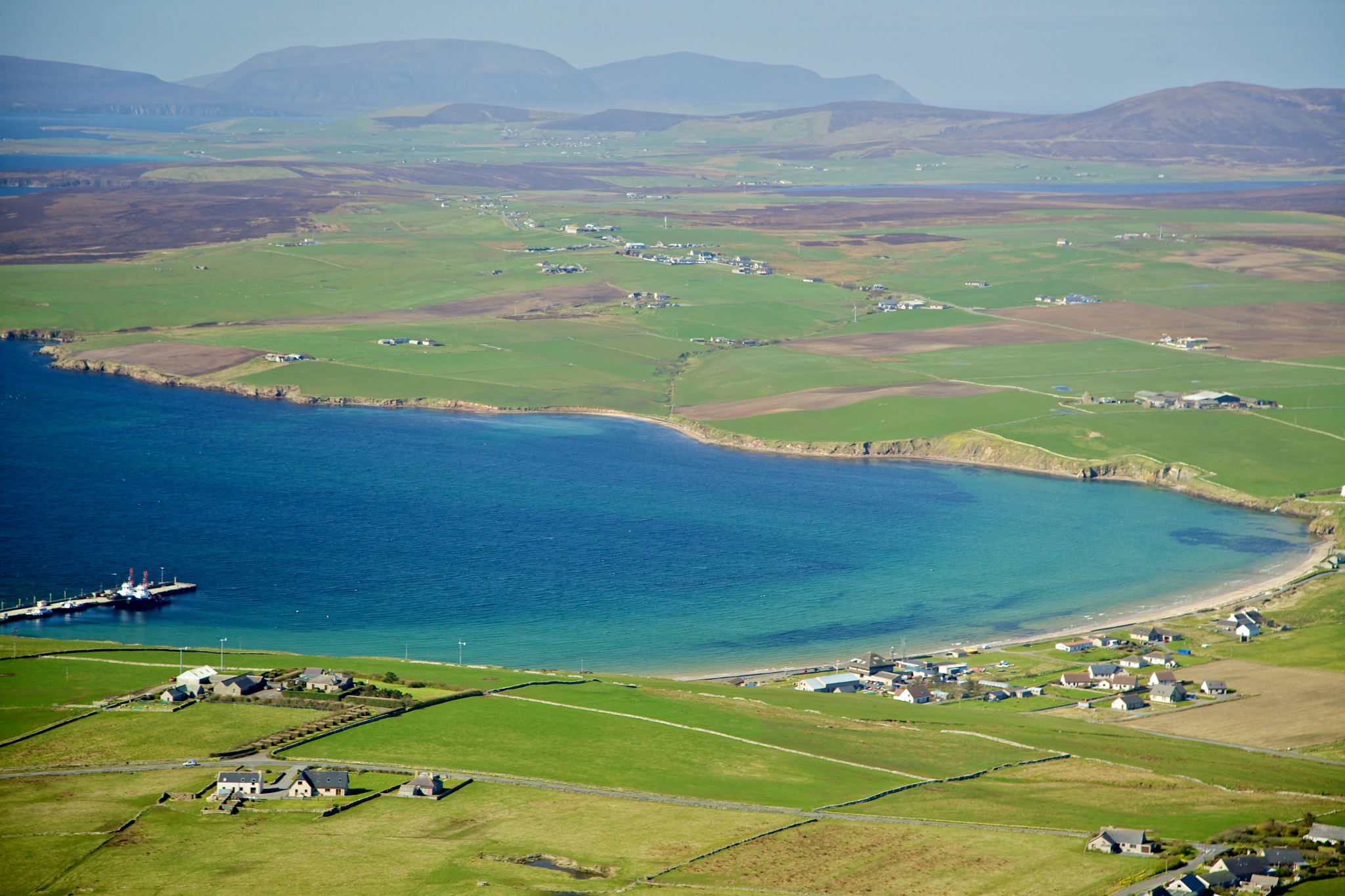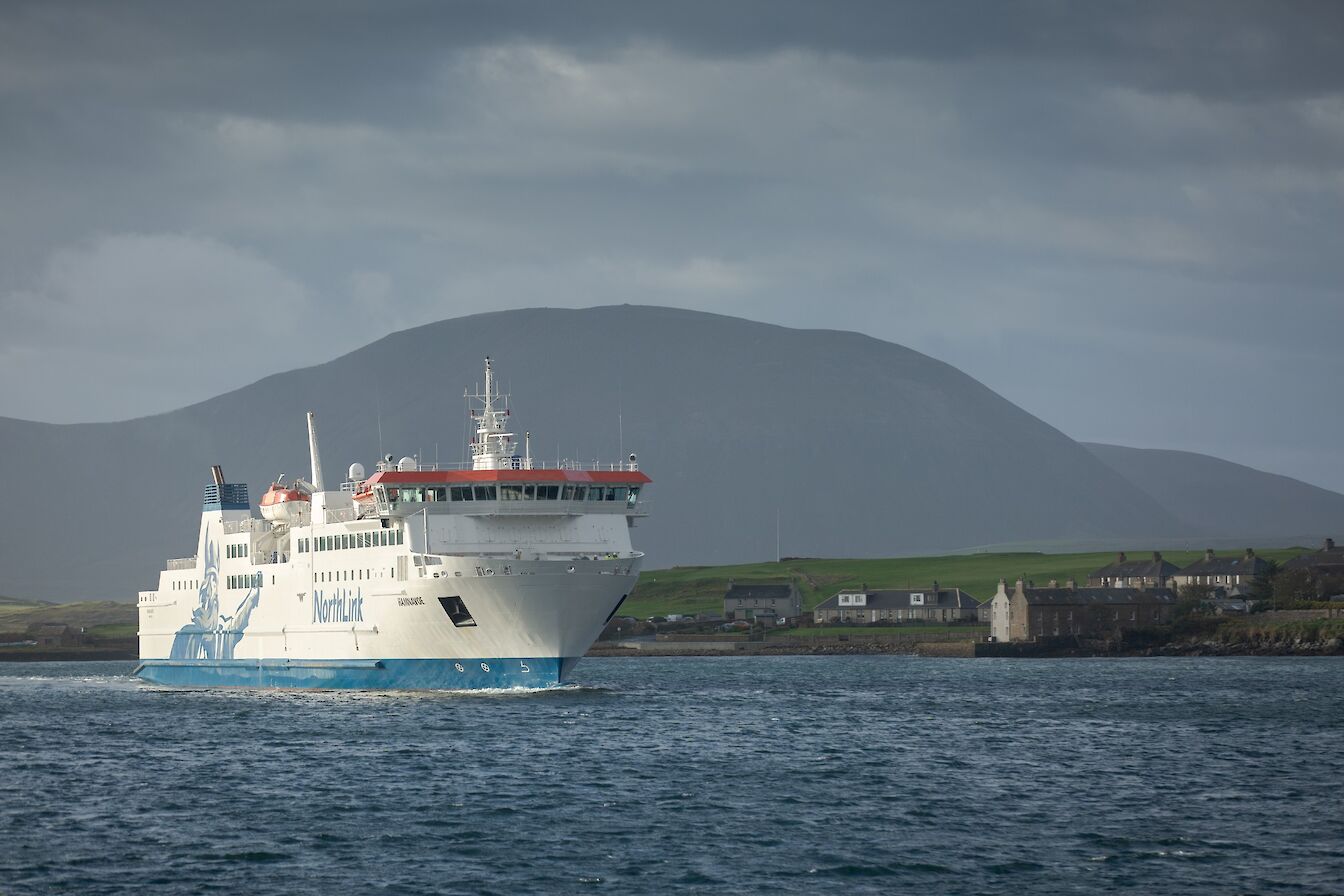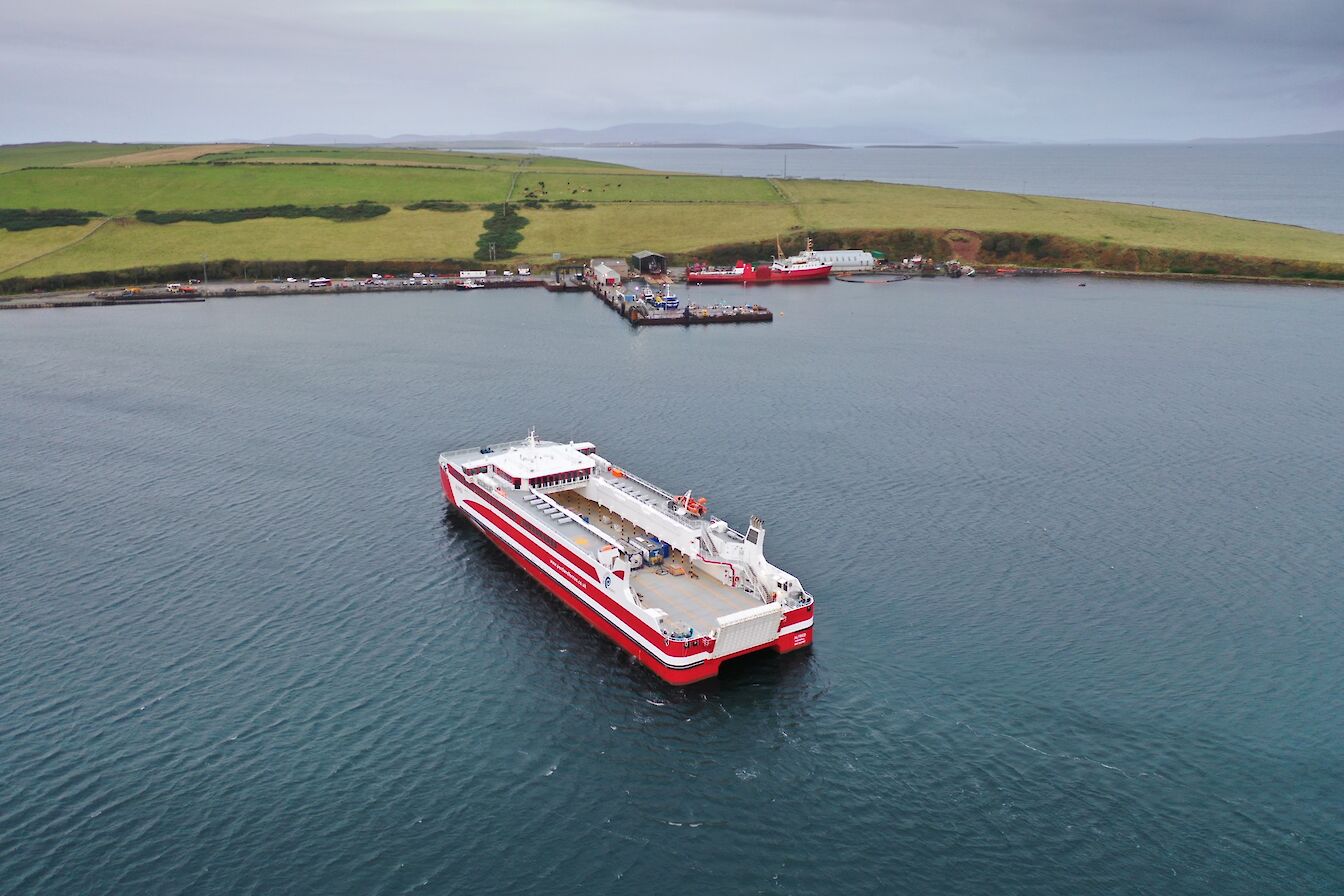remote adjective (remoter, remotest) 1 (of a place) situated far from the main centres of population; distant: the valley is remote from the usual tourist routes / a remote Welsh valley. OED.
‘Hi Jane, it’s Richard, we’re going to live in Orkney’
‘Where’s that?’
‘It’s a group of islands off the north coast of Scotland – just near John O’ Groats.’
‘Hi Dave, it’s Jane. Have you heard, Richard and Bev are going to live on a remote Scottish island?’
I hope you spotted Jane’s gossipy insertion of the R-word in the above conversations. People from south always seem to use it when referring to Scottish islands. Orkney folk never describe here as remote. In fact they may even challenge you on its use: ‘What do you mean, remote? Remote from where? This is our home so it’s not in the least bit remote to us.’
Remote and Scottish island are words that often go together automatically; like wicked and deflection in football. The ball coming off a defender’s foot and beating the keeper for a goal is always said to take a wicked deflection never an evil deflection, an unlucky deflection or, simply, just a deflection.
Could Jane have said ‘…going to live in a peaceful Scottish island…’ or ‘a beautiful Scottish island’? I guess she could.
Oh dear, the dictionary (see above) even gives a Welsh valley as an example of somewhere remote. I suppose the entry could have read: a remote Scottish island. So I guess we’re stuck with it. In actual fact, although we might bridle at the description, islanders do like to make use of the romantic association with remoteness, as in adverts for holidays, knitwear and crafts of all sorts: ‘hand made on a remote Scottish island.’ Or ‘Get away from it all in Orkney’. What does ‘away from it all’ mean if not remote?
All these thoughts came flooding to mind the other day when I was waiting at traffic lights (whoaa – we don’t have traffic lights in Orkney. These were just a temporary set put up by some workers digging a hole). I looked up and saw a plane climbing out of Kirkwall Airport. I wondered where they were off to. Some winter sun in Madeira perhaps; shopping and the theatre in Edinburgh; south to visit family maybe. Could be they were visitors, returning home and taking one, last look down on the turquoise shallows, and the white waves breaking on the shore of Mainland and ringing hundreds of rocks and skerries.
If they’re anything like I was as a visitor their hearts will be breaking around now, I thought. They’ll be making pledges, one to another, to return at their earliest opportunity. ‘Let’s come for a month next time; let’s move to live here; I’ve never seen anything like it.’
The aeroplane made me think how connected we are in Orkney. Remote? Maybe, but well connected to the centre. Loganair can have you in Inverness, Aberdeen, Glasgow or Edinburgh in about an hour and from there you can be in Sydney, London, Bejing or Madeira as quickly as anyone.
During WW1 Admiral Jellicoe was in charge of the British fleet based in Scapa Flow, Orkney. Thousands of service personnel were based here, both on ships and in shore-side support roles. These men (they were mostly men) came north for duty or south for leave on nightly trains terminating in Thurso, for transfer across the Pentland Firth to Orkney. It was a long trip but the connection was never broken. The trains were known as the Jellicoe Express and the contribution of the railway workers to the war effort is commemorated in plaques at tiny, rural (remote) stations along the line today. Trains still run on the line carrying locals and visitors between Orkney and Inverness. The Far North Line is, more or less, protected from closure by its status as a life-line service. The line is connected to Orkney by the NorthLink ferry MV Hamnavoe.
Two more NorthLink boats ply between Aberdeen, Orkney and Shetland. There’s also Andrew Banks OBE, a private operator who can whisk you to Orkney in an hour in his brand new, state of the eco-art catamaran MV Alfred.
Finally, we should acknowledge the Electric A9 – the longest road in Scotland at 273 miles between Falkirk and Scrabster (Thurso’s ferry port) and soon to be well punctuated with car charging points. Described as another life-line the A9 is a great place to be driving during a winter blizzard. Coming home over the Cairngorms one night one January I counted ten snow ploughs passing south on the opposite carriageway. I was soon relieved to catch up with one heading north and settled in behind it until we dropped into Inverness and a clear road ahead. Everyone works very hard to keep the life-lines open and Orkney connected.
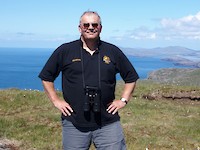 Richard writes regularly for Scottish Islands Explorer. His first book: 'Scotland’s Islands – A Special Kind of Freedom' was published in 2014. 'Orkney – A Special Place' appeared in 2017, with 'Orkney - A Special Way of Life' arriving in 2021. The books are published by Luath Press, Edinburgh
Richard writes regularly for Scottish Islands Explorer. His first book: 'Scotland’s Islands – A Special Kind of Freedom' was published in 2014. 'Orkney – A Special Place' appeared in 2017, with 'Orkney - A Special Way of Life' arriving in 2021. The books are published by Luath Press, Edinburgh
